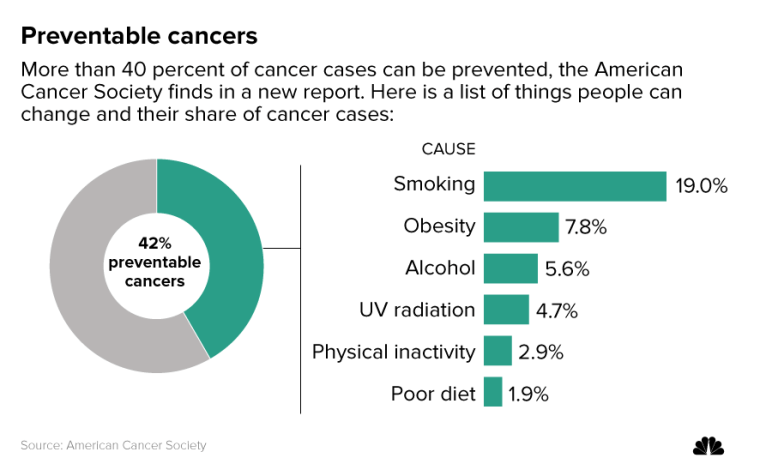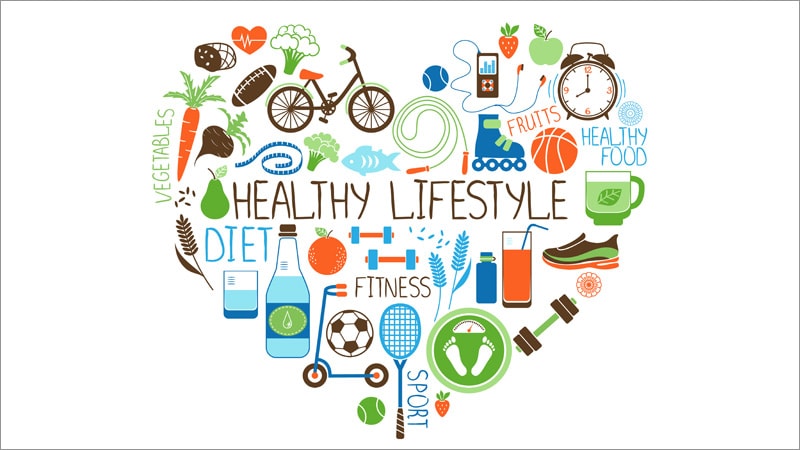
Must know things about cancer!!
Diseases
HD Medical Team
on Sun, Jan 12 2020 07:15 AM
2705 Views
No recommendations yet !!!
What is cancer?
Cancer is one of the most dreaded diseases of human being and is a major cause of death all over the globe. In our body, cell growth and differentiation is highly controlled and regulated. In cancer cells, there is breakdown of this regulatory mechanism. Normal cell show a property called contact inhibition by virtue of which contact with other cell cells inhibits their uncontrolled growth. Cancer cell appears to have lost this property. As a result, cancerous cells just continue to divide giving rise to masses of cells called tumors.

Image source: Emedicinehealth
Oncology is the study of cancer cells.
What are the types of Cancer?
Benign cancer
Benign cancer normally remains confined to their original location and do not spread to other parts of the body and cause little damage.
Malignant cancer
Malignant tumors are a mass of proliferating cells called neoplastic or tumor cells. These cells grow very rapidly, invading and damaging the surrounding normal cells. As these cells actively divide and grow, they also starve the normal cells by competing for vital nutrients.
Cells sloughed from such cancer reach distant sites through blood and wherever they get lodged in the body, they start a new tumor there. This property called metastasis is the most feared property of malignant cancer.
What are the causes of cancer?
Transformation of normal cells into cancerous cells may be induced by physical, chemical or biological agents. These agents are called carcinogens.
- Ionising radiations like X-rays and gamma rays, and non-ionising radiations like UV cause DNA damage leading to cancerous transformation.
- The chemical carcinogens present in tobacco smoke have been identified as a major cause of lung cancer.
- Cancer causing viruses called oncogenic viruses, which have genes called viral oncogens.

Image source: NBC news
Some human cancer causing viruses:
Human Papilloma Virus(HPV) - Cervical cancer (Cancer of the cervix in female)
Epstein Barr Virus(EBV) - Burkitt's lymphoma
Herpes Virus 8 - Kaposi sarcoma (Skin cancer in AIDS patient)
Hepatitis C virus - Hepatocellular carcinoma(Liver cancer)
How to detect cancer and diagnose it?
Early detection of cancer is essential as it allows the diseases to be treated sussessfully in many cases. Cancer detection biopsy and histopathological studies of the tissue, blood and bone marrow is based on tests for increased cell counts in case of blood cancers.
- Biopsy, a piece of the suspected tissue cut into a thin section is stained and examined under the microscope(histopathological studies) by pathologists
- Techniques like radiography(use of X-ray), Computed Tomography(CT), and Magnetic Resonance Imaging(MRI) are very useful to detect cancers of the internal organs.
- Antibodies against cancer-specific antigens are also used for detection of certain cancers
What is the treatment of Cancer ?
The common approaches for treatment of cancer are surgery, radiation therapy and immunotherapy.
- Surgery where the doctor operates and take your your cancer mass
- Radiotherapy where the cancer cells are irradiated lethally, taking proper care of the normal tissues surrounding the tumor mass.
- Several chemotherapeutic drugs are used to kill cancerous cells.
When to see doctor if you suspect yourself of having cancer?
You must visit to a doctor if you have following canges in your body:
- Feel something hard mass of tissue at some of your body part. Mostly, a hard mass is felt at the breast, skin and other different part of body.
- Change is size and color of mole that you have previously also may be sign of cancer.
- Decrease in weight gradually
- Change in stool and urinating habits
- Bleeding during passing stool, urine, from nose and mouth
How to prevent yourself from cancer?
- Stop using tobacco, smoking and avoid even second hand smoke.
- Processed meat was classified as Group 1, carcinogenic to humans. There are sufficient evidences from epidemiological studies that eating processed meat causes colorectal cancer. Thus, limit your intake of processed meats.
- Consider adopting a “Mediterranean diet” that focuses mainly on plant-based foods, lean proteins, and healthy fats including primarly of fish, vegetable, legumes, whole grains, potatoes, fruits, extra virgin olive oil (EVOO), moderate amount of wine and samll amount of red meat.
- Avoid alcohol, or drink in moderation. Moderate drinking is defined as one drink a day for women of all ages and men older than 65, and up to two drinks a day for men 65 years of age and younger.
- Keep a healthy weight and stay active by getting at least 30 minutes of physical activity every day.
- Stay protected from the sun. Exposure to solar radiation, mainly UV, can cause skin cancer. so you must be concious to protect your skin. Cover up with clothing, sunglasses, and a hat, and apply sunscreen frequently. Avoid the sun between 10 a.m. and 4 p.m. This is when the sun’s rays are at their strongest.
- Get vaccinated against viral infections that can lead to cancer, such as hepatitis B and HPV.
- Don’t engage in risky behaviors. Practice safe sex and don’t share needles when using drugs or prescription medications. Only get tattoos at licensed parlors.

Image source: Medscape
See your doctor regularly so they can screen you for various types of cancer. This increases your chances of catching any possible cancers as early as possible.
CARE CANCER PATIENTS WITH LOVE !!!




Leave a comment